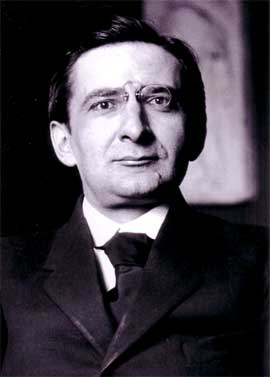Louis Lavelle facts for kids
Quick facts for kids
Louis Lavelle
|
|
|---|---|

Louis Lavelle
|
|
| Born | July 15, 1883 Saint-Martin-de-Villeréal
|
| Died | September 1, 1951 (aged 68) Parranquet
|
| Era | 20th-century philosophy |
| Region | Western philosophy |
| School | Continental philosophy French spiritualism |
|
Main interests
|
Metaphysics, ethics |
|
Notable ideas
|
Classification of values, participation in the Absolute (participation à l'Absolu) |
|
Influences
|
|
|
Influenced
|
|
Louis Lavelle (July 15, 1883 – September 1, 1951) was a famous French philosopher. He is known as one of the most important French thinkers about metaphysics in the 1900s. Metaphysics is a part of philosophy that explores big questions about what is real and how things exist.
His most important work was La Dialectique de l'éternel présent (1922). This book was a deep study of metaphysics. Lavelle also wrote other key books like De l'Être (1928), De l'Acte (1937), and Du Temps et de l'Eternité (1945). His last major work was De l'Âme Humaine (1951).
In his writings, Lavelle explored many important ideas. These included axiology (the study of values), aesthetics (the study of beauty and art), and the problem of evil. He also wrote about morality (what is right and wrong) and the freedom of the human spirit. Lavelle was a member of a respected French group called the Académie des Sciences Morales et Politiques.
Biography of Louis Lavelle
Louis Lavelle was born in France in 1883. He passed away in France in 1951. He was a professor at important universities in France, like the Collège de France and the Sorbonne. He also gave talks at universities in other countries, including Germany, Italy, and Switzerland.
In 1947, he was recognized for his many books on philosophy and religion. He was named a member of the Académie des sciences morales et politiques. This is a very respected group that honors important thinkers.
Key Books by Louis Lavelle
Louis Lavelle wrote many books during his life. Here are some of his most well-known works in French:
- La dialectique du monde sensible: La perception visuelle de la profondeur (1921)
- La conscience de soi (1933)
- La présence totale (1934)
- L'Erreur de Narcisse (1939)
- Le Mal et la Souffrance (1940)
- La Parole et l'Écriture (1947)
- Les puissances du Moi (1948)
See also
 In Spanish: Louis Lavelle para niños
In Spanish: Louis Lavelle para niños
- René Le Senne
- Gabriel Marcel
 | Tommie Smith |
 | Simone Manuel |
 | Shani Davis |
 | Simone Biles |
 | Alice Coachman |

